The upcoming Taiwanese elections, scheduled for January 13, are set to be a turning point in the nation’s political history. With the presidential and legislative elections on the horizon, the focus is now on the parties and their respective agendas. As Taiwan navigates complex internal and external challenges, the election campaigns are anticipated to shed light on the contrasting visions for the nation’s future.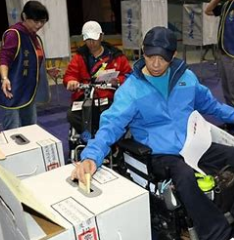
In what is shaping up to be a landmark year for global elections, Taiwanese voters, despite being just 23.5 million in number, will soon head to the polls to elect their next president, vice president, and legislative representatives. 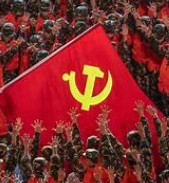 The significance of Taiwan’s election extends beyond its borders due to its contested political status.
The significance of Taiwan’s election extends beyond its borders due to its contested political status.
Although Taiwan has been de facto-independent since the 1940s, it and its outlying territories are still claimed by the Chinese Communist Party (CCP). This is a claim that nearly all Taiwanese reject, but often hesitate to voice publicly due to the fear of war. Thus, these elections hold an outsized importance, not just for Taiwan, but for the region as a whole.
Taiwan’s Presidential Contenders

The upcoming Taiwanese Presidential election, scheduled for January 13, 2024, is a significant event with three main contenders vying for the top spot:
Lai Ching-te, the current Vice-President and representative of the Democratic Progressive Party (DPP),is considered the frontrunner. His running mate, Hsiao Bi-Khim, is a former Taiwanese envoy to the US. The DPP aims to maintain Taiwan’s peaceful status quo by bolstering international ties, particularly with the US.
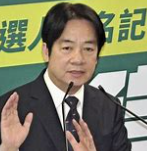
Hou You-yi of the more conservative Kuomintang (KMT) is challenging Lai. Hou, a former police officer and the well-liked mayor of New Taipei City, is seen as a candidate with wide-ranging
appeal. His running mate is Jaw Shaw-kong, a former member of the Legislative Yuan.
The Taiwan People’s Party (TPP) has nominated its leader, Ko Wen-je, the former Mayor of Taipei. His running mate is Cynthia Wu, a member of the Legislative Yuan.
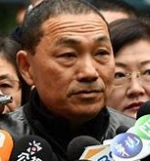
In addition, the two major political parties in Taiwan, the DPP and the KMT, are preparing for an intense electoral showdown. The incumbent President, Tsai Ing-wen of the DPP, is seeking re-election, while the KMT has put forth Han Kuo-yu, the mayor of Kaohsiung, as its presidential candidate. Both parties are anticipated to offer contrasting policy platforms and visions for Taiwan’s future. This election is not just a contest of candidates, but a clash of ideologies and future trajectories for Taiwan.
Taiwanese elections in a brief
Taiwan, or the Republic of China (ROC), is a democratic republic with a unique five-branch government system. The president, elected every four years, holds significant executive powers. The government includes the presidency and five ‘yuans’ or branches. Local governments consist of special municipalities, counties, and autonomous municipalities. Elections in Taiwan involve direct voting for the president and vice president, and legislative elections.
The Legislative Yuan, Taiwan’s unicameral legislature, is responsible for law-making and government oversight. Taiwan’s political system also has federal traits, with local governments holding primary jurisdiction in certain areas. The president also represents the nation in foreign relations and appoints the heads of the four branches of government. Taiwan’s vibrant democracy is characterized by a multi-party system, regular elections, freedom of speech, and a robust civil society.
Agendas: Global Relations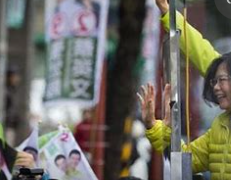
The upcoming elections are likely to be dominated by key issues such as cross-strait relations with China, economic policy, national security, and social welfare. President Tsai Ing-wen’s DPP is expected to emphasize Taiwan’s sovereignty and push for policies that promote a distinct Taiwanese identity. On the other hand, the KMT is likely to focus on improving economic ties with China and addressing domestic economic challenges.
The outcome of the Taiwanese elections will also have significant implications for regional stability and international relations. The Chinese government, which views Taiwan as a renegade province, will closely monitor the election results, as they could influence cross-strait relations. Additionally, the United States and other regional powers will be watching the elections closely due to Taiwan’s strategic importance in the Asia-Pacific region.
Public poll
The upcoming Taiwanese Presidential election is stirring up quite a buzz. The latest polls suggest that Lai Ching-te of the Democratic Progressive Party (DPP) is in the lead with 36% of the vote. Hot on his heels is Hou You-yi from the Kuomintang (KMT) with 31%. Not far behind, Ko Wen-je of the Taiwan People’s Party (TPP) is holding his own with 24%.
Future Outlook
As the Taiwanese elections draw near, the political landscape is characterized by heightened polarization and intense competition between the major parties. The outcome of the elections will not only shape Taiwan’s domestic policies but also have far-reaching implications for regional stability and international relations. With both domestic and international factors at play, the upcoming elections are set to be a critical juncture in determining Taiwan’s future trajectory.


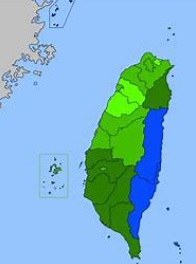











Comments 1